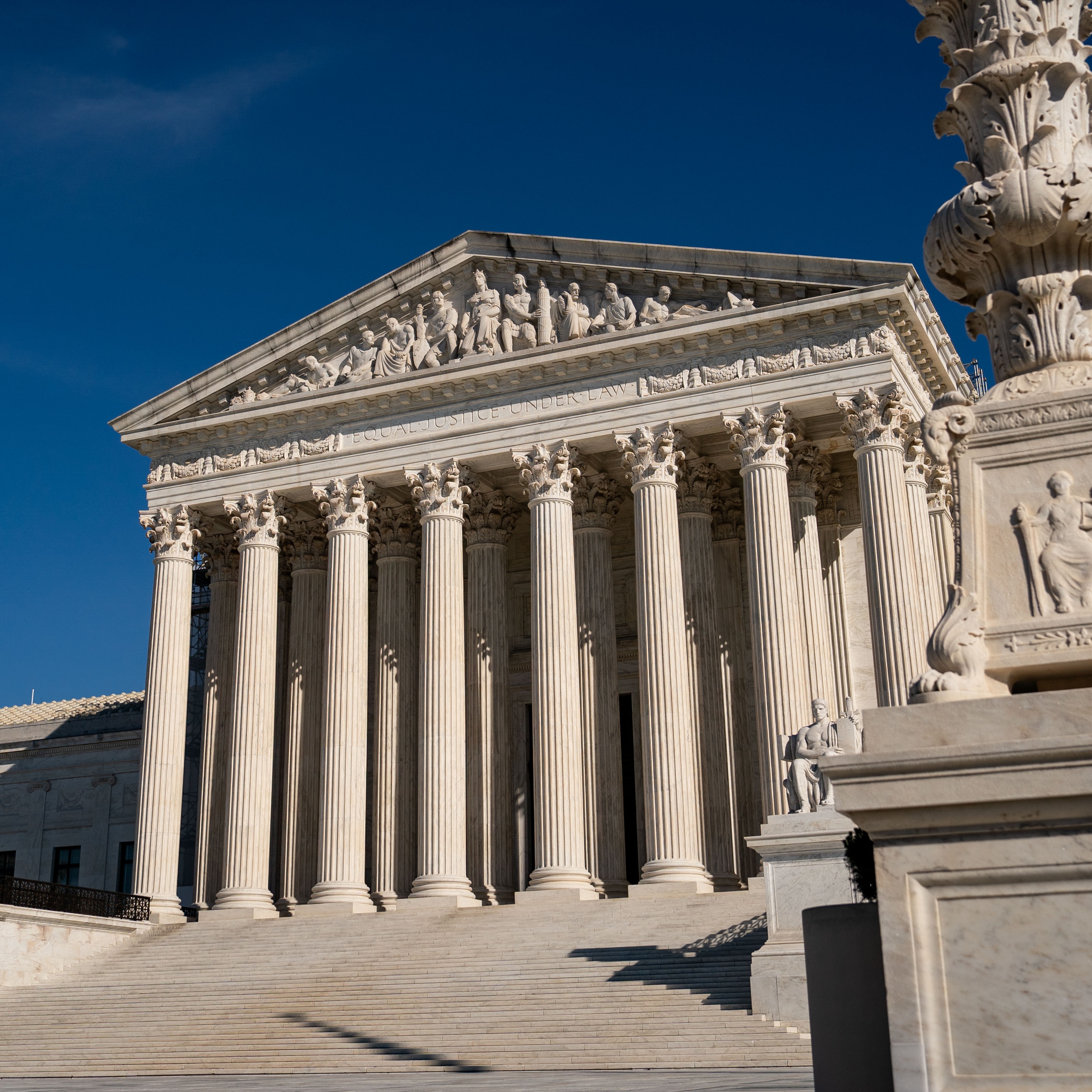Supreme Court upholds Trump tax provision on offshore earnings

The Supreme Court of the United States building on Feb. 1, in Washington. (Kent Nishimura for the Washington Post)
The Supreme Court on Thursday rejected a challenge to an obscure provision of President Donald Trump’s 2017 tax package, ending a lawsuit that many experts feared could destabilize the nation’s tax system.
In a 7-2 decision, the court upheld a one-time tax on offshore earnings that helped fund the massive tax cut is permitted under Congress’s limited powers of taxation.
Some viewed the lawsuit as an effort to preemptively block Congress from creating a wealth tax.
An unusual political coalition defended the offshore-earnings tax, from the Biden administration to conservatives including former House speaker Paul D. Ryan. Not because they favor a wealth tax, but because they worry a ruling against one little-known provision could undermine vast swaths of existing taxes on investments, partnerships and foreign income, which together raise billions or even trillions in revenue.
The lawsuit was initiated by a Washington couple backed by the Competitive Enterprise Institute, an anti-regulatory advocacy group. Charles and Kathleen Moore were subject to $15,000 in taxes because of the 2017 law, springing from investments they had made in a company based in India that supplies equipment to small-scale farmers. The law created a one-time tax on certain offshore earnings that had previously been exempt from taxation unless the taxpayer brought the money back to the United States.
The Moores told the court they never earned any money from their investment, and they sued the federal government seeking a refund. The district court dismissed their case, and the U.S. Court of Appeals for the 9th Circuit upheld that decision, saying the tax was within Congress’s power and permitted under the 16th Amendment regardless of whether the Moores took in, or “realized,” any income.
The specific tax that the Moores object to paying, known as Section 965, was forecast to raise more than $300 billion over 10 years. Some major corporations have already paid billions under this specific tax; a ruling that struck it down entirely might mean the government has to issue tens of billions of dollars in refunds.
Some tax experts said the Moores were more involved in the company than they disclosed in court filings and urged the court not to decide the constitutional question based on an inaccurate, incomplete record. One of the couple’s lawyers defended the record as accurate and candid. At oral argument in December, in the case known as Moore v. United States, several justices said the tax on certain offshore earnings was substantially similar to other major forms of taxation, including on income earned by business partnerships, limited liability corporations and other offshore income.
Write a letter to the editor, share a story tip or update, or report an error.



